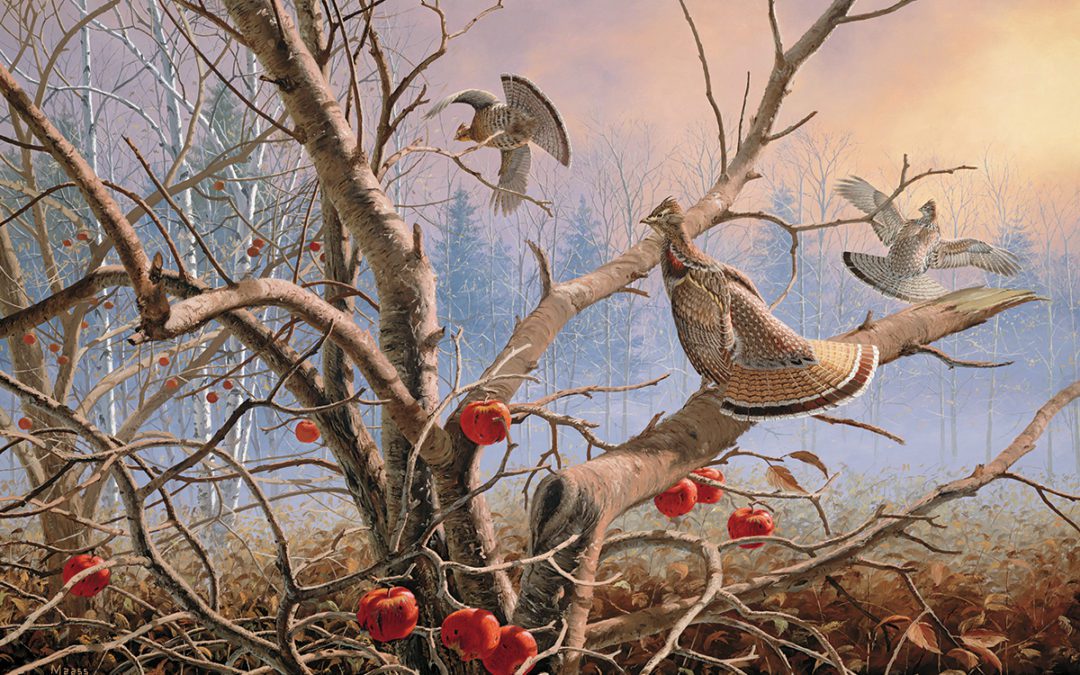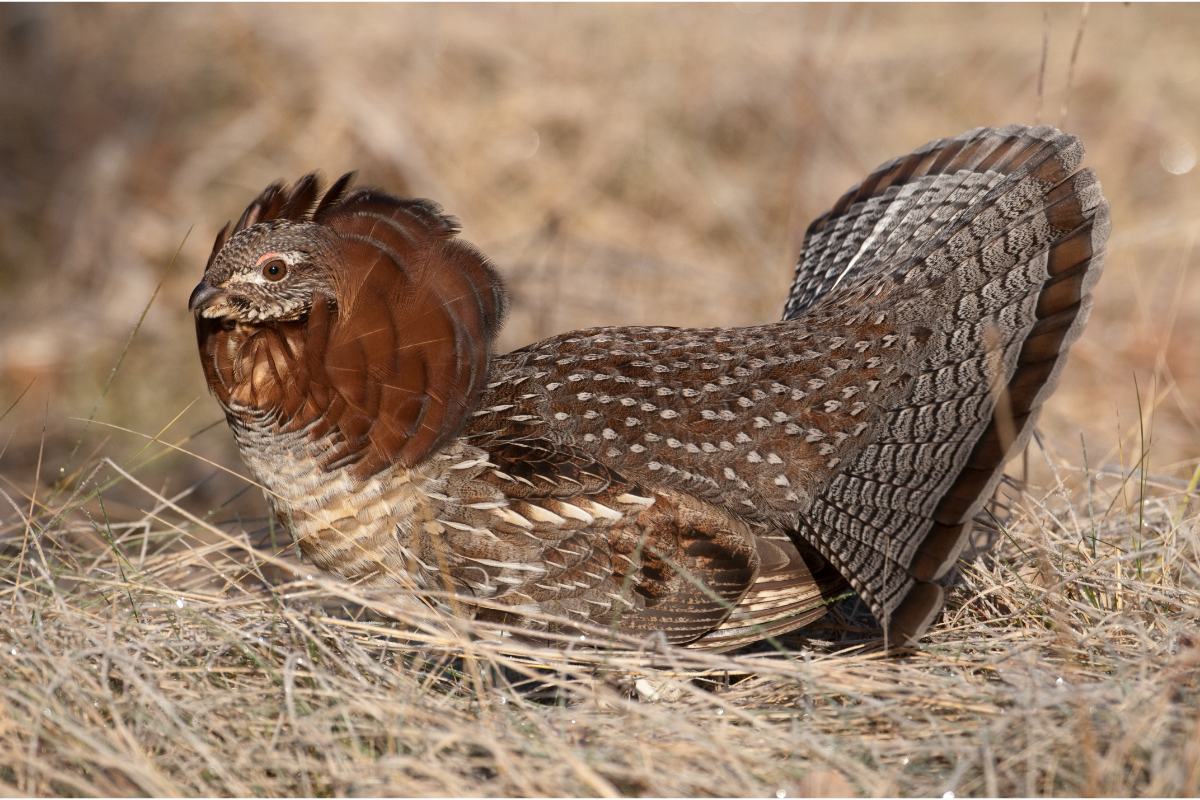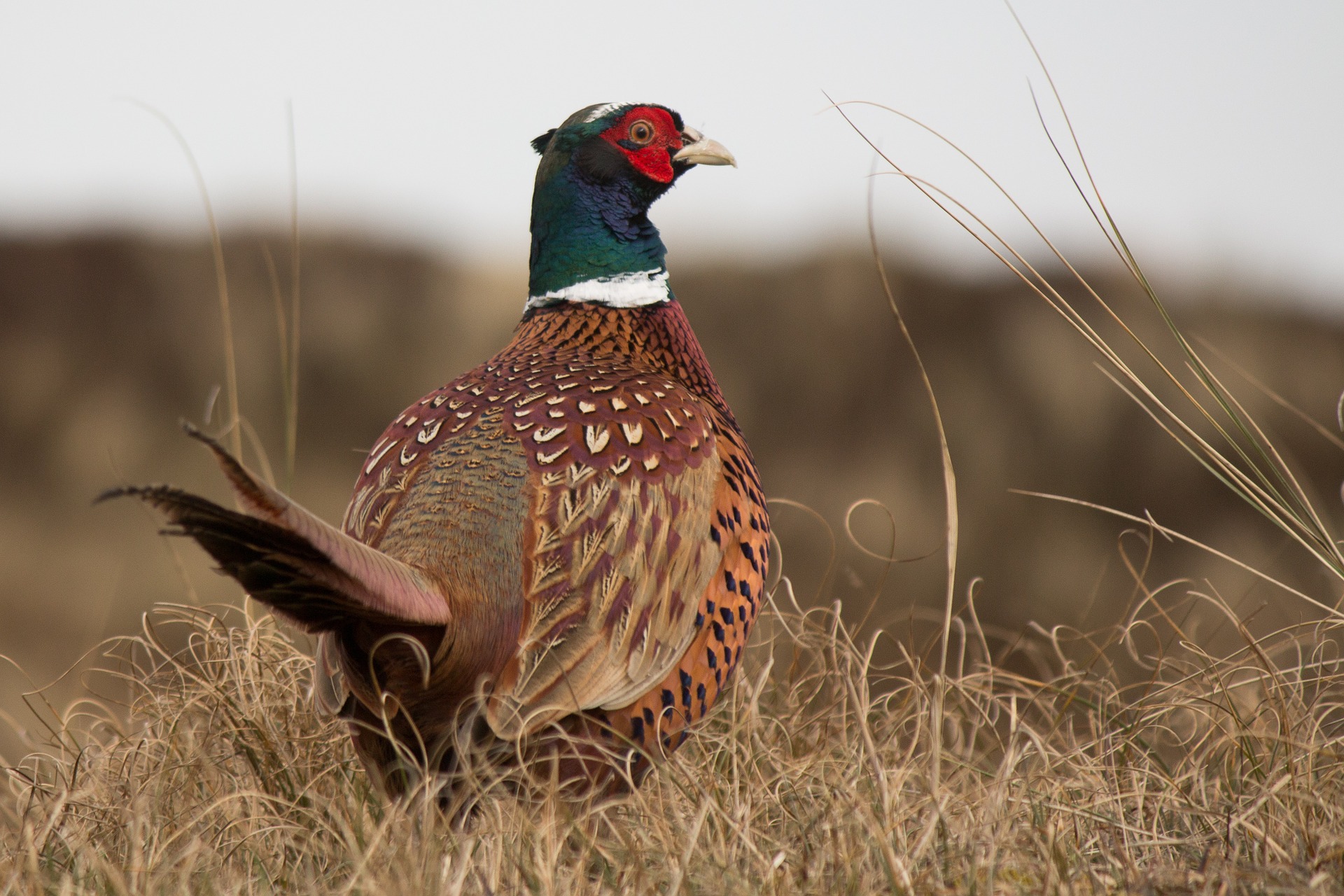In an orchard, long abandoned, we make our way toward a solitary tree, one of few bearing apples this fall. That it has fruit at all strikes me as promising for a number of reasons, the least of which is grouse eat apples. The mythic part of me is taken by the notion that this tree, in its last throes, gasping for breath beneath the strangling grape vines that have overtaken it, still has the force to drive through its green fuse that which becomes fruit—if I may mangle Dylan Thomas. It’s as if its dying wish is to provide a meal for the congregation that thrives on this hill.
We have been looking for birds, and finding them, all along this hillside in Vermont. It has been an afternoon of misses. I can smell the smoke from the chimneys down in the valley, and I begin to think more about a fire than a grouse. I am surrendering, giving in to the impulse to try again another day. However, my confederate, Peter, has not. He leans into his every step, watching my setter for her tells. His motion is that of a trooper. Instead of foxholes, it’s apple trees. And now it’s this particular tree.
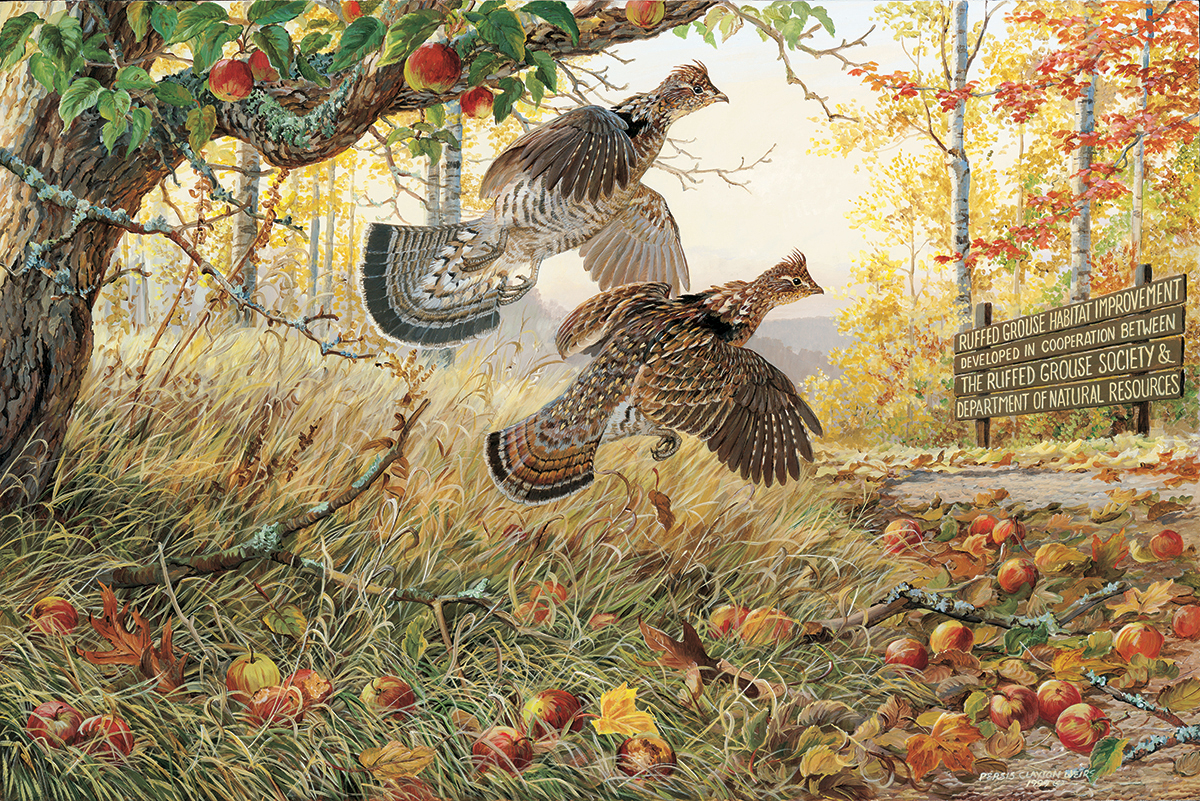
Peter is tall—I imagine him often in a long plastic apron in his ancestral Sweden, cutting herring on the docks or mending nets, an image that bears no resemblance to him at all. He hates fish and doesn’t sew; such is the power of imagination.
I like that he knows things. Shotguns—he once found for me a between-the-wars British double that seemed to have been priced by rubes—but other things too, such as canoe paddling tricks, under-appreciated Russian novelists, how to balance a portfolio. Aside from being eminently agreeable, he is a fabulous shot. An unassuming demeanor belies this. In fact, I often think he is too affable to kill game—too kind. But one should not be fooled; he is devastating with a smooth-bore.
I bring him along not only for companionship, but so that grouse may fall to the plate. If it were left to me, we would both starve. I provide the dogs, the cover and he the birds. This is how it works—in theory. But as I said, it had been an afternoon of misses.
I call to him: “This corner produces birds, be ready.”
I can’t see him. The dog is already ahead. She is excited, and she is irritated. She points, we miss. This has been our day. There is no bargain in it for her. Unlike me, though, she is not ready to quit.
The bell quickens, then stops. Lazy focus, the result of our wearying uphill walk, gives way to fomenting nerves. We measure our breath, await the curtain rise, the main act.
I am thinking, if there is no bird, will I still think this place is sacrosanct? What if there are no birds at all? All this tragic beauty. Silos winking in the weak autumn light; the fields with their forgotten trees and upturned stones; rusted cattle-wire and split-rail fences crisscrossing the pastures.
It’s a pointless question, for of course the flush occurs, just as it has a half-dozen times that day. The rush of feathers—it’s like thunder, no, like a pull-shade suddenly released. The sound recalls in us the regret of a missed exit, the shudder of a car suddenly in our blind spot as we switch lanes, that inability to alter something that is already happening. We’ve heard it so many times and still it jangles us, so much that we fumble like biddies at bridge, throwing the wrong card.
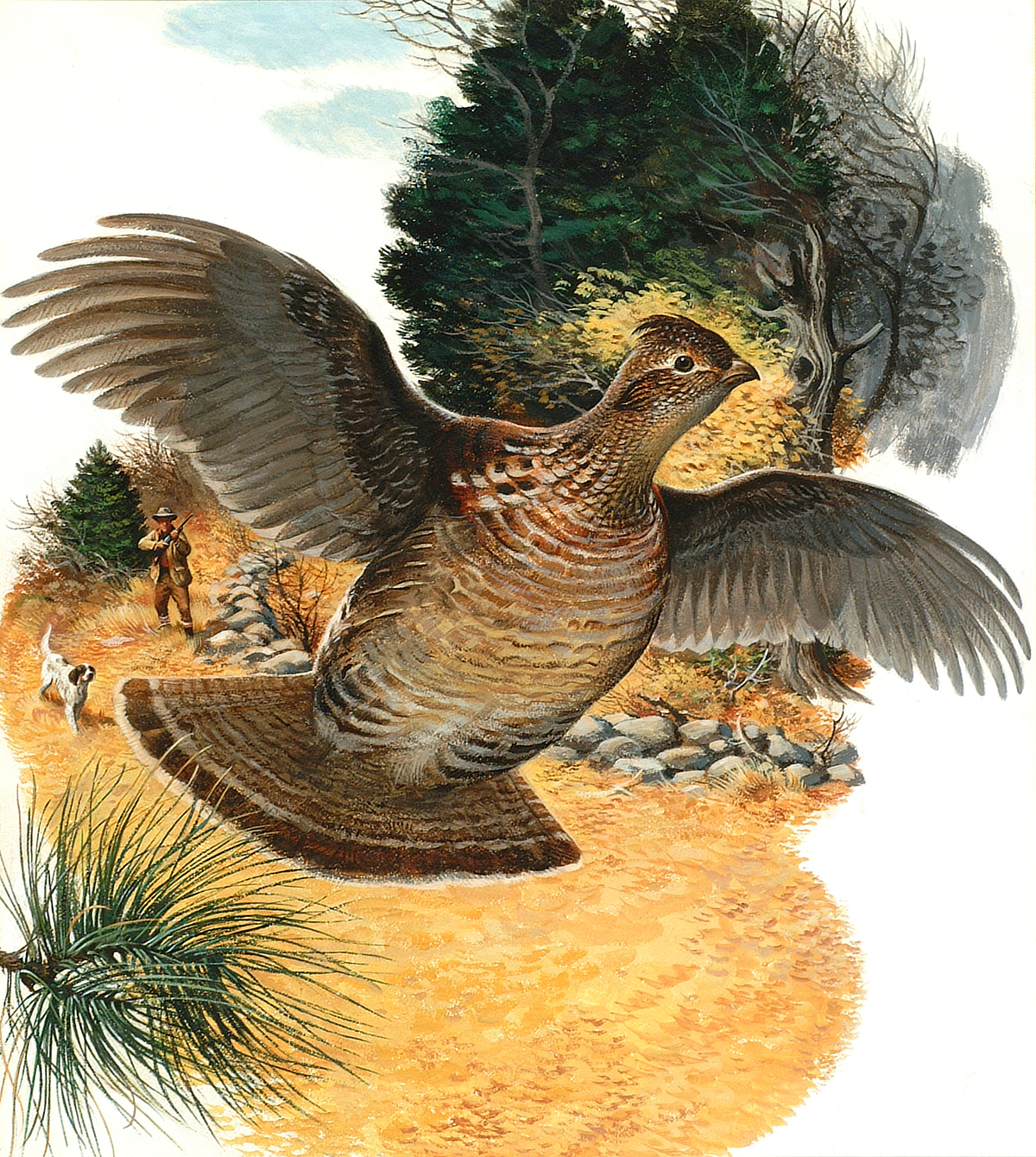 Safeties stay on, triggers are missed, mostly it’s our cheeks, we never get them onto the stocks. We know the drill, yet we do it again and again.
Safeties stay on, triggers are missed, mostly it’s our cheeks, we never get them onto the stocks. We know the drill, yet we do it again and again.
I hear no report. Why not? The bird must have started right in front of him. Peter tells me later that he dropped both hammers, but now I hear only his wistful refrain.
“Misfire,” he shouts. “Both rounds, can you believe that?”
I can. I’d heard the grouse flush, all flipping cards and feather, but not the sound of his Parker. The dog is still pointing, refusing to give into our despair.
“I shot that grouse. I know everyone says that, but I did.”
He watches me carefully. Am I going to be sympathetic? He isn’t sure. And, no I’m not. I look at Ruby, still pointing where the bird had fled, then at him.
“What do I tell the dog, Peter?”
“It was in the open. Lumbering, like a goddamned goose. I killed it. I did, I did.”
He is still watching me, insistent. I shift self-consciously. I call the dog to distract from the awkwardness. But I believe him; if he says he shot the grouse, he shot the grouse. He’s that good.
“Well I didn’t, but I would have had I put fresh shells in. Damned grouse, get you every time.”
And he is right, they do. Some even hex you, trick you into thinking you’ve reloaded. I can’t tell you how we both wished, just then, to smell the sweet odor of burned powder.

